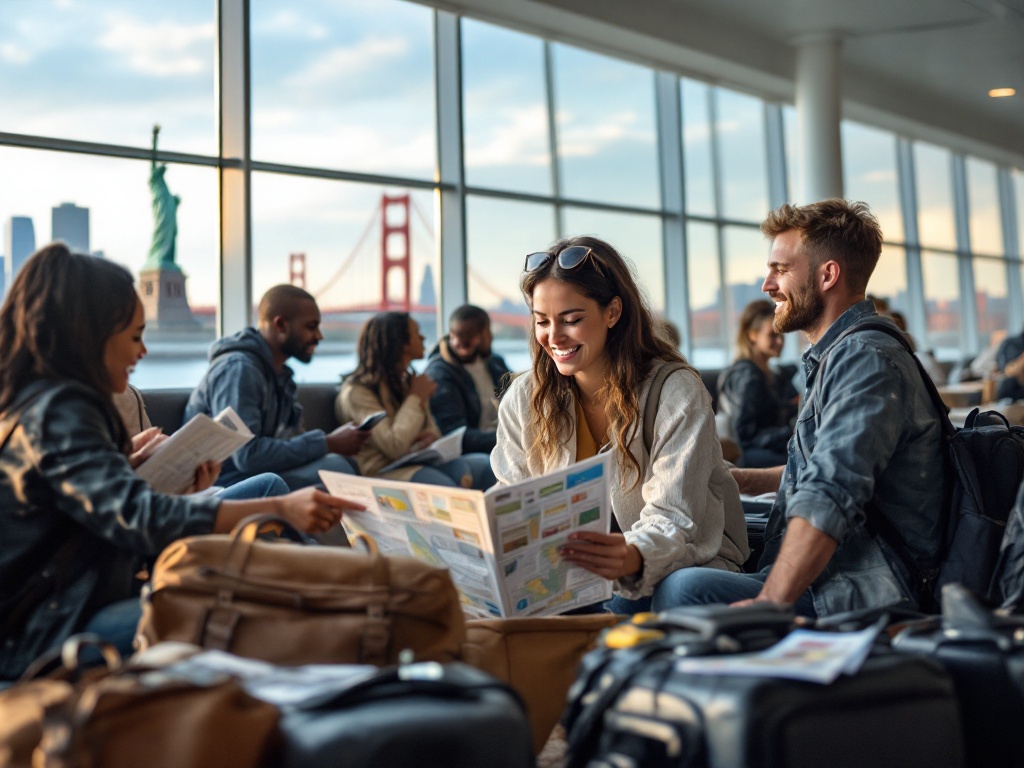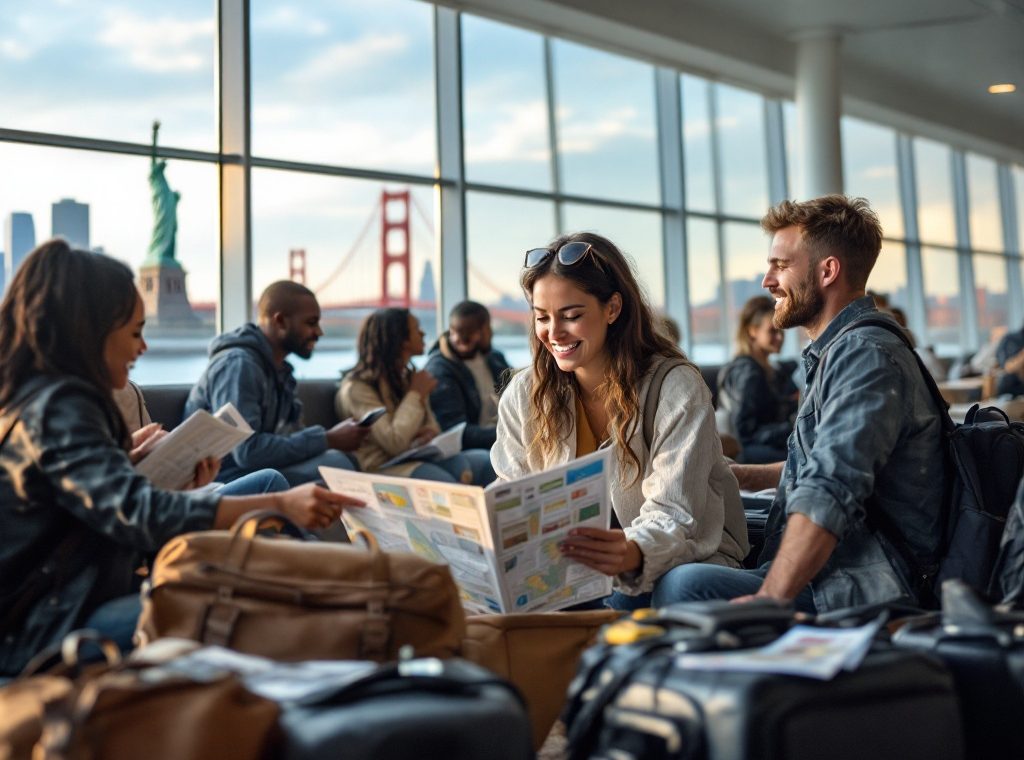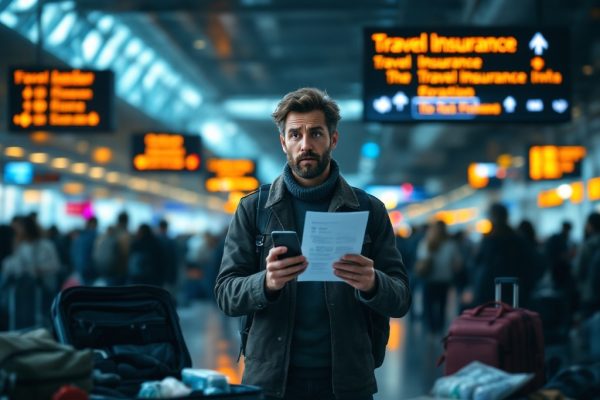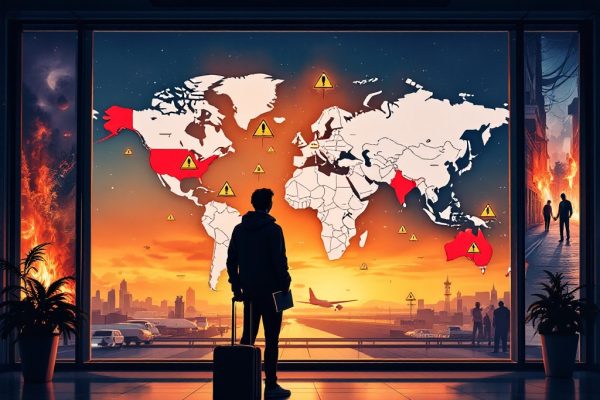Is Traveling to the US Safe
Planning a trip to the US? From navigating bustling cities to exploring natural wonders, your dream vacation awaits. But with recent travel advisories from countries like Germany and the UK, safety is paramount. This comprehensive guide equips you with essential knowledge, covering everything from crime rates and gun violence risks to natural disaster preparedness and health precautions like Zika and Dengue awareness. Learn how to stay informed with the latest alerts from the National Terrorism Advisory System (NTAS) and CDC travel advisories. Discover vital resources, including emergency contact information and the Smart Traveler Enrollment Program (STEP). Empower yourself with the information you need for a safe and enjoyable American adventure. Read on to prepare for your US trip.
Important information

- Research your destination’s crime rates and consider safety risks, which can be higher in urban areas. Be aware of your surroundings, especially at night.
- The US has various natural disaster risks like hurricanes (June-November) and earthquakes (especially West Coast). Monitor forecasts from the National Hurricane Center and U.S. Geological Survey.
- Check for travel advisories issued by your government. Some countries have issued warnings about the US due to crime and political instability.
- Consult the CDC website for health information, recommended vaccinations (like MMR), and precautions against mosquito-borne illnesses like Zika and dengue fever.
- Ensure you have the correct visa and comply with US customs regulations. Declare all items you are bringing into the country to avoid penalties.
Is Traveling to the US Safe?
Traveling to the US? Here’s what you need to know to stay safe. Crime rates are generally higher in urban areas than in rural ones, so research your destination in advance. Exercise caution throughout your trip. Natural disasters, such as hurricanes and earthquakes, can occur depending on the region and time of year. Stay updated on weather forecasts and heed local advisories. Health risks, including infectious diseases, are also present. Check the CDC’s travel health website for recommended precautions before your trip.
Safety Tips for US Travel
- Research your destination’s crime rates beforehand.
- Exercise caution, especially in urban areas.
- Be aware of your surroundings.
Health and Natural Disaster Preparedness
- Check the CDC’s travel health website for information on infectious diseases.
- Stay informed about weather forecasts and potential natural disasters.
- Follow local advisories in case of emergencies.
Travel Advisories and Warnings
Before traveling abroad, check your government’s website for travel advisories and warnings about other countries. These advisories cover various safety concerns, such as the political climate, entry requirements, and potential risks for specific groups like transgender travelers. For example, Germany and the U.K. recently issued advisories about the U.S. Staying informed ensures a safer trip.
Current US Travel Advisories
Several European nations have issued travel advisories for their citizens planning trips to the U.S., citing concerns about violence and political instability. Prospective travelers should heed these warnings and consult official government resources for the most up-to-date information and travel guidance to ensure a safe and informed journey.
Travel Alerts and Advisory Levels
Travel advisories offer safety guidance using a numbered system. Level 1 advises normal precautions. Level 2 advises increased caution. Level 3 recommends reconsidering travel. Level 4 recommends avoiding travel altogether. The US also issues alerts for specific short-term events, such as protests or civil unrest, providing crucial safety details.
Level 4 Advisories: Do Not Travel
Germany and other nations have issued Level 4 “Do Not Travel” advisories, citing serious risks like violent protests and escalating political tensions. Heeding these warnings is crucial for your safety, so avoid these areas.
Exercise Increased Caution Due to Crime
Be vigilant in urban areas, where crime rates are higher. Violent crime, especially, is a risk in some neighborhoods. Your safety depends on your awareness.
Safety and Security Considerations
Safety is a priority for American travelers. Risks include crime, gun violence, and terrorism, especially in urban areas. Enhance your safety by staying aware of your surroundings, particularly in poorly lit areas at night. Keeping informed about local conditions and practicing standard safety precautions is also recommended.
Crime and Safety Precautions
Be mindful of your surroundings, especially at night. Try to avoid walking alone in dimly lit or secluded areas.
Protect your valuables. Avoid displaying expensive jewelry or large sums of cash, and utilize hotel safes whenever possible.
Research your destination thoroughly. Understand local safety concerns and potential crime hotspots before you arrive.
Share your travel plans. Keep loved ones informed about your itinerary and provide updates on your location.
Prioritize your safety in a confrontation. Cooperate with any criminal demands and avoid resisting to minimize potential harm. Report any incidents to the local authorities immediately.
Petty Crime vs. Violent Crime
Petty theft, such as pickpocketing or scams, targets your belongings. Violent crimes, like robbery or assault, threaten your personal safety. While both are serious, petty theft focuses on stealing, not physical harm.
Gun Violence Risks
Gun violence is a serious safety concern in the US. Several European countries have issued travel advisories, warning their citizens about potential dangers.
Fraud and Criminal Incidents
Be aware of scams, especially in crowded tourist areas. Criminals often target unsuspecting visitors with various deceptive tactics. Stay vigilant.
Terrorism Concerns
The US Department of Homeland Security issues terrorism alerts and warnings to keep you informed of potential threats. Your safety is a priority.
Terrorism Alert System
The Department of Homeland Security keeps the public informed about terrorist threats through its National Terrorism Advisory System (NTAS). Checking NTAS bulletins before traveling is a good way to stay safe and aware.
Natural Disasters and Weather Risks
Hurricanes are a serious threat, especially during the Atlantic hurricane season, which runs from June 1st to November 30th. Earthquakes, particularly on the West Coast, are another significant hazard. To ensure safety, travelers should monitor weather forecasts and heed warnings from the National Hurricane Center and the U.S. Geological Survey. Having a well-defined emergency plan, including evacuation routes and communication strategies, is crucial and could be lifesaving.
Hurricane Season and Earthquakes
Hurricane season affects coastal regions from June 1st to November 30th. Travelers to these areas should monitor the National Hurricane Center for weather forecasts.
Earthquake-prone areas include California, Alaska, and the Pacific Northwest. The U.S. Geological Survey provides earthquake advisories for these regions.
Impact of Climate Change
Extreme weather events, such as heatwaves, droughts, floods, wildfires, and hurricanes, are becoming more frequent and intense due to climate change. Travelers should be mindful of these increasing risks, as severe storms can easily disrupt trips, leading to flight cancellations and road closures. Planning ahead is essential, and travel insurance can provide valuable protection. Staying updated on weather forecasts is also crucial for a safe and smooth journey.
Tips for Traveling during Extreme Weather
- Check weather forecasts regularly before and during your trip.
- Sign up for travel alerts from your airline or transportation provider.
- Consider travel insurance that covers weather-related disruptions.
- Pack appropriate clothing and supplies for potential weather changes.
- Have a backup plan in case your trip is affected by extreme weather.
Important Considerations
- Extreme weather can cause significant travel delays and cancellations.
- Safety should always be your top priority during extreme weather events.
- Be prepared to adjust your itinerary if necessary due to weather conditions.
- Stay informed about local emergency procedures and evacuation routes.
- Follow the guidance of local authorities and emergency personnel.
Health and Medical Services
While the US doesn’t mandate vaccinations for entry, routine immunizations like the MMR vaccine are recommended. This protects against measles, mumps, and rubella. Although Zika isn’t a major concern in the continental US, it’s present in some US territories. Dengue fever is another risk, particularly in areas like Puerto Rico, the US Virgin Islands, and American Samoa. Consult your doctor about recommended vaccinations and ways to prevent mosquito bites.
Vaccination Requirements
Safeguard your health by staying up-to-date on routine vaccinations before traveling. For US-specific travel advisories and destination-specific vaccination requirements, consult the CDC website. Entry requirements vary by country and may include mandatory vaccinations based on your origin and travel history.
Health Risks: Zika Virus and Dengue
Zika and dengue, two mosquito-borne illnesses carried by the Aedes mosquito, are present in some parts of the US. Zika can cause fever, rash, joint pain, and red eyes. Pregnant women are particularly susceptible to Zika, as the virus can lead to birth defects. Dengue presents differently with symptoms including high fever, severe headaches, muscle and joint pain, and a skin rash. The CDC offers information on areas with active transmission, advising travelers to these regions to take precautions such as using insect repellent and wearing long sleeves and pants to prevent mosquito bites.
Entry and Exit Requirements
Entering the US requires adherence to visa and customs regulations. Contact the US embassy in your country for specific visa requirements. Upon arrival, Customs and Border Protection officers enforce these laws. Ensure you have a valid passport and all necessary travel documents.
Visa Requirements
Visa requirements vary by nationality. Some nationalities qualify for the Visa Waiver Program, permitting 90-day visits for tourism or business without a visa. Others must obtain a visa in advance. It’s crucial to apply for the correct visa type, aligning with your purpose of travel.
Customs and Border Protection
Customs and Border Protection inspects all arriving passengers and their luggage. Declare everything you’re bringing into the country, including food, agricultural items, and gifts. Certain items, such as firearms and some medications, have restrictions. Failure to comply with customs regulations can result in penalties, including fines and confiscation of goods.
Visa and Immigration Regulations
Your nationality determines the type of U.S. visa required for entry. For specific visa details, visit the U.S. Embassy or Consulate website for your country. Compliance with U.S. immigration law is crucial to avoid potential denial of entry.
U.S. Customs and Border Protection Policies
Non-U.S. citizens are required to provide biometric data to U.S. Customs and Border Protection.
Upon arrival, customs officials might ask for proof of funds, evidence of ties to Canada, or other necessary documentation.
Transport and Road Safety
Public transportation in the U.S. offers various travel options, from buses and subways to trains. Road safety is crucial, and following traffic laws, including speed limits and road signs, is essential. However, safety practices vary depending on the mode of transport; navigating the subway is different from driving. Research the specific rules and safety guidelines for your chosen mode of transport. Consider your location for a safe and enjoyable journey.
Public Transport Safety
Public transport safety in US cities differs depending on whether you’re using a bus, subway, or train. Research local safety guidelines before traveling. Be aware of your surroundings and take precautions against petty theft.
Emergency Services and Consular Assistance
For immediate help, call 911 (police, fire, or ambulance). For non-emergency police situations, contact your local non-emergency number. U.S. residents needing assistance with passports or federal agencies should contact their Congressional representatives.
International travelers facing emergencies abroad can find support from their embassy or consulate, particularly for lost passports or legal matters.
Traveling internationally? Stay safe with the Smart Traveler Enrollment Program (STEP). This program allows U.S. citizens and nationals to register their trip with the nearest U.S. Embassy or Consulate, providing crucial safety and security advantages.
- The Embassy can contact you during emergencies like natural disasters, civil unrest, or family crises.
- You’ll also receive important safety updates about your destination to help inform your travel choices.
- STEP enables the Embassy to locate you quickly if an emergency arises.
Emergency Contacts and Services
In the US, 911 is the number to call for any emergency, whether you need police, fire, or medical assistance. Be sure to tell the operator your precise location and clearly describe the situation. Knowing the location of nearby hospitals and understanding your insurance coverage can also be incredibly helpful in saving time and resources.
Enrolling in the Smart Traveler Enrollment Program (STEP)
Planning a trip or relocating abroad? Enroll in the Smart Traveler Enrollment Program (STEP), a free service provided by the U.S. government. Register your trip with the nearest U.S. Embassy or Consulate to receive crucial safety updates from your destination country. STEP also enables the Embassy to contact you more easily, especially during emergencies. Stay informed, stay connected, stay safe with STEP.

















